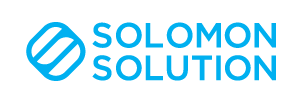
Transitioning to a remote work environment
Me: “I got an amazing job offer! The team seems great, and it’s exactly the kind of work that I want to be doing. But…”
Friend: “But?”
Me: “But the team works remotely, and I always thought I would work in an office because that’s all I’ve ever known.”
I had quite a few conversations that looked like this after I got an offer to work with Solomon. I was so excited about my role on the team, but the concept of working in a remote environment felt foreign and unpredictable to me.
I’m the last person anyone would expect to take a remote position. I’m your textbook extrovert—super chatty, outgoing, and in general, I just love being around people. It’s no surprise that this translated to my working preferences. I’ve always enjoyed the social aspect of being in an office, as well as the flexibility of stopping by someone’s desk when a question comes up or talking about projects over lunch.
I had a lot of preconceived notions about working remote, thinking that it wouldn’t afford me the same opportunities that a typical office setting would.
Deciding to Go Remote
Spoiler alert: I ended up taking the job!
So, how did I come to that decision? It took some time and careful consideration of my priorities. I also had to recognize that it was a calculated risk, but I ultimately decided that it was worth it.
When considering a remote position, the following questions can be helpful to determine if it’s a good fit:
Is the team 100% remote, or will I see team members from time to time?
- This was an important distinction for me. Seeing team members at the client site breaks up the week and allows brainstorming sessions or conversations better had in person.
Is my company willing to provide a workspace if a home office is not an option?
- Having a home office is not an option for everyone, so finding out if you can work out of a coworking space may make a big difference.
Am I the kind of person that will take the initiative and be willing to reach out for help?
- As simple as it seems, reach out for help or to raise a hand when you have extra capacity to take on more work. Not everyone feels comfortable reaching out to team members who they’re not in person with on a daily basis. Assessing whether this is something you’d be comfortable with can make or break your success in a remote environment.
Know What I Know Now
Once I started working remote with Solomon, I realized one of the biggest challenges that stems from a remote environment is keeping regular communication. For example, reaching out to people can feel like an obstacle when first starting. This can lead to struggling with an issue a lot longer than necessary just due to feeling apprehensive about reaching out.
Even determining channels of communication can be challenging. Does a question warrant an email? A formal meeting? A quick message over Microsoft Teams? I typically err on the side of a quick message, versus an email. If it turns out something doesn’t have an easy answer, or needs more explaining, being willing to propose a call to sort things out can go a long way in getting a question answered.
Our team also utilizes video calls and regular team meetings to ensure we’re up to speed on what each team member is working on, and our bandwidth needed for other projects.
One of the reasons our team has been so successful is because Solomon has developed a culture that addresses some of the challenges faced by remote teams. Our managing director Jesse Fowl spoke to this in his appearance on The Modern Manager podcast with Mamie Kanfer Stewart.
If you are interested in joining our team check out the openings on our careers page – we’d love to meet you!
Or if you have any questions about working on a remote team, don’t hesitate to reach out.

